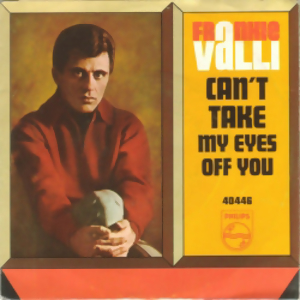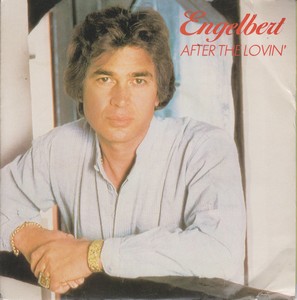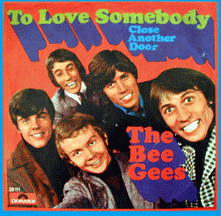
"You Keep Me Hangin' On" is a song written and composed by Holland–Dozier–Holland. It was first recorded in 1966 by American Motown girl group the Supremes, reaching number one on the Billboard Hot 100. American rock band Vanilla Fudge released a cover version in June of the following year, which reached number six on the Billboard Hot 100. English singer Kim Wilde covered "You Keep Me Hangin' On" in 1986, reaching number one on the Billboard Hot 100 in June 1987. In the first 32 years of the Billboard Hot 100 rock era, "You Keep Me Hangin' On" became one of six songs to reach number one by two different musical acts. In 1996, American country singer Reba McEntire's version reached number two on the US Billboard Hot Dance Club Play chart. The BBC ranked the Supremes' original song at number 78 on The Top 100 Digital Motown Chart, which ranks Motown releases by their all-time UK downloads and streams.

"I'm a Believer" is a song written by Neil Diamond and recorded by the Monkees in 1966 with the lead vocals by Micky Dolenz. The single, produced by Jeff Barry, hit the number-one spot on the U.S. Billboard Hot 100 chart for the week ending December 31, 1966, and remained there for seven weeks, becoming the last No. 1 hit of 1966 and the biggest-selling single for all of 1967. Billboard ranked the record as the No. 5 song for 1967. While originally published by Screen Gems-Columbia Music (BMI), it is now published by Stonebridge Music/EMI Foray Music (SESAC), with administration passed to Sony/ATV Music Publishing and Universal Music Publishing Group.

"You're Sixteen" is a song written by the Sherman Brothers. It was first performed by American rockabilly singer Johnny Burnette, whose version peaked at number eight on the US Billboard Hot 100 in December 1960 and number 3 in the UK in 1961. The song was covered by Ringo Starr in 1973 and this version reached number one in the US.

"Ramblin' Rose" is a 1962 popular torch song written by brothers Noel Sherman (words) and Joe Sherman (music) and popularized by Nat King Cole. The recording by Nat King Cole reached No. 2 on the Billboard Hot 100 chart in 1962.

Arnold George Dorsey, known professionally as Engelbert Humperdinck, is an English pop singer who has been described as "one of the finest middle-of-the-road balladeers around". He achieved international prominence in 1967 with his recording of "Release Me".

"Can't Take My Eyes Off You" is a 1967 song written by Bob Crewe and Bob Gaudio. It was recorded as a single by Frankie Valli. The song was among his biggest hits, earning a gold record and reaching No. 2 on the Billboard Hot 100 for a week. Gaudio was a bandmate of Valli's in the Four Seasons. It was Valli's biggest solo hit until he hit No. 1 in 1975 with "My Eyes Adored You".

"After the Lovin'" is a single performed by Engelbert Humperdinck, produced by Joel Diamond and Charlie Calello, and composed by Ritchie Adams with lyrics by Alan Bernstein. The single was a U.S. top-ten hit in late 1976/early 1977, reaching number eight on the Billboard Hot 100 and number five on the Cash Box Top 100. It became a RIAA gold record. It is ranked as the 61st biggest U.S. hit of 1977. The song also reached number 40 on the country singles chart and spent two weeks atop the easy listening chart. It was Humperdinck's final Top 40 Billboard hit.

"Rag Doll" is a popular song written by Bob Crewe and Bob Gaudio. It was recorded by the Four Seasons and released as a single in 1964.

"This Guy's in Love with You" is a song written by Burt Bacharach and Hal David, and recorded by Herb Alpert. Although known primarily for his trumpet playing as the leader of the Tijuana Brass, Alpert sang lead vocals on this solo recording, arranged by Bacharach. An earlier recording of the song was by British singer Danny Williams titled "That Guy's in Love", which appears on his 1968 self-titled album.

"Kentucky Woman" is a 1967 song written and originally recorded by Neil Diamond.

"To Love Somebody" is a song written by Barry and Robin Gibb. Produced by Robert Stigwood, it was the second single released by the Bee Gees from their international debut album, Bee Gees 1st, in 1967. The single reached No. 17 in the United States and No. 41 in the United Kingdom. The song's B-side was "Close Another Door". The single was reissued in 1980 on RSO Records with "How Can You Mend a Broken Heart" as its flipside. The song ranked at number 94 on NME magazine's "100 Best Tracks of the Sixties". It was a minor hit in the UK and France. It reached the top 20 in the US. It reached the top 10 in Canada.

"C'mon Marianne" is a song composed by L. Russell Brown and Raymond Bloodworth and popularized by The Four Seasons in 1967. Produced by Bob Crewe, the single was the last Four Seasons single to reach the Top Ten of the Billboard Hot 100 chart in the 1960s, and their last Top Ten hit until "Who Loves You" in 1975.

"The Last Waltz" is a ballad, written by Barry Mason and Les Reed. It was one of Engelbert Humperdinck's biggest hits, spending five weeks at number 1 on the UK Singles Chart, from September 1967 to October 1967, and has since sold over 1.17 million copies in the United Kingdom. In Australia,
"Release Me", is a popular song written by Eddie "Piano" Miller and Robert Yount in 1949. Four years later it was recorded by Jimmy Heap & the Melody Masters, and with even better success by Patti Page (1954), Ray Price (1954), and Kitty Wells (1954). Jivin' Gene [Bourgeois] & the Jokers recorded the tune in 1960, and that version served as an inspiration for Little Esther Phillips, who reached number one on the R&B chart and number eight on the pop chart with her big-selling cover. The Everly Brothers followed in 1963, along with Lucille Starr including a translation in French (1964), Jerry Wallace (1966), Dean Martin (1967), Engelbert Humperdinck (1967) who was number one on the UK Singles Chart and many others in the years after such as Jewels Renauld (2022).

"Never My Love" is a pop standard written by American siblings Don and Dick Addrisi, and best known from a hit 1967 recording by The Association. The Addrisi Brothers had two Top 40 hits as recording artists, but their biggest success as songwriters was "Never My Love". Recorded by dozens of notable artists in the decades since, in 1999 the music publishing rights organization Broadcast Music, Inc. (BMI) announced it was the second most-played song on radio and television of the 20th century in the U.S.
"Am I That Easy to Forget" is a popular song written by country music singer Carl Belew and W.S. Stevenson and published in 1958. Belew recorded his song in Nashville on December 17, 1958, and released the single in March 1959, when it reached number nine on the U.S. country music chart. Other country music artists who have recorded cover versions of the song include Skeeter Davis, Ernest Tubb (1960), Gene Vincent (1966), George Jones (1967), Patti Page (1968), Jim Reeves and Prairie Oyster (1991).

"Quando m'innamoro" is a 1968 Italian song written by Daniele Pace, Mario Panzeri and Roberto Livraghi and sung with a double performance by Anna Identici and by The Sandpipers at the 1968 Sanremo Music Festival, in which it came 6th.

"Winter World of Love" is a song recorded by Engelbert Humperdinck, which was released on his eponymous album and as a single in 1969.

"I Can't Live a Dream" is a 1976 single by The Osmonds as the first track on their Brainstorm LP..
"The Way It Used to Be" is a song recorded by Engelbert Humperdinck, which was released on the album Engelbert and as a single in 1969. It is an English language adaptation of the Italian language song "Melodia", which was originally released by Isabella Iannetti in 1968.

















